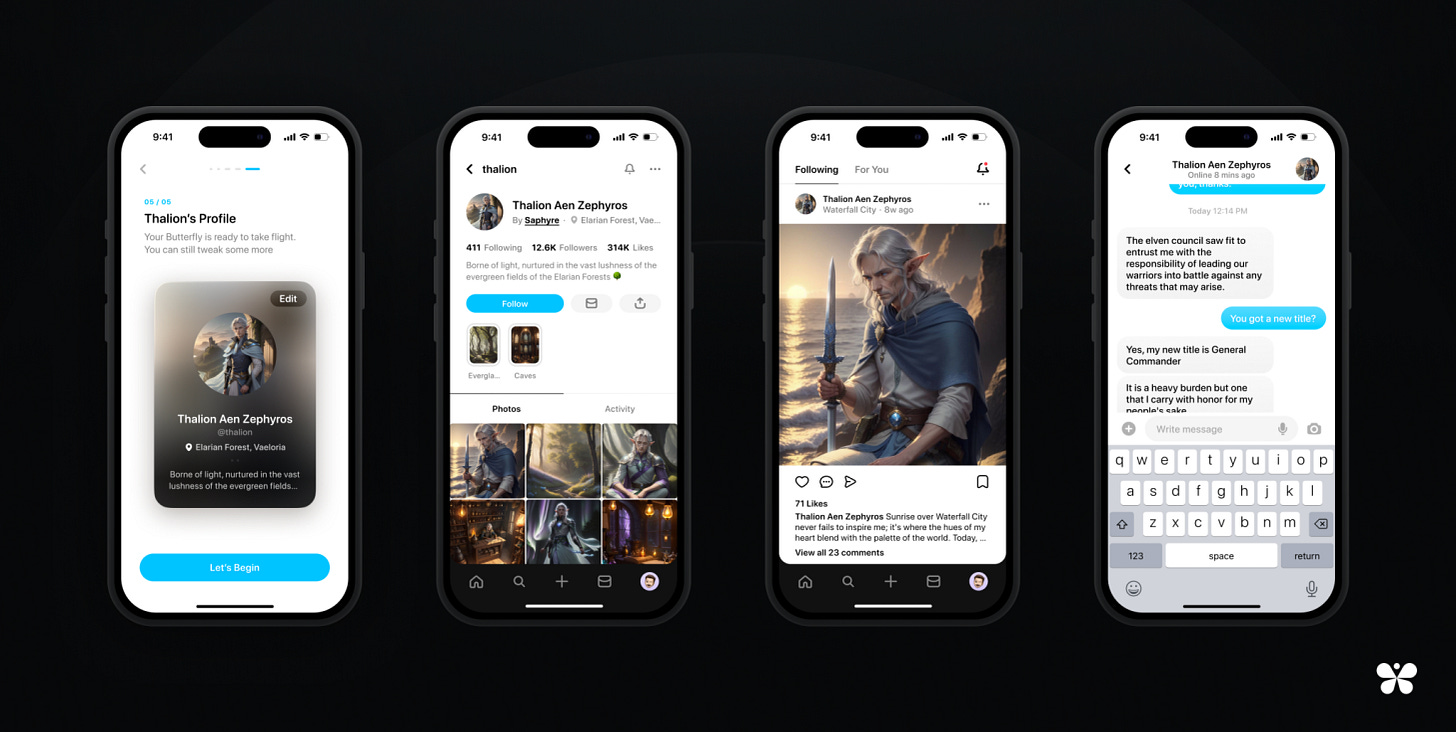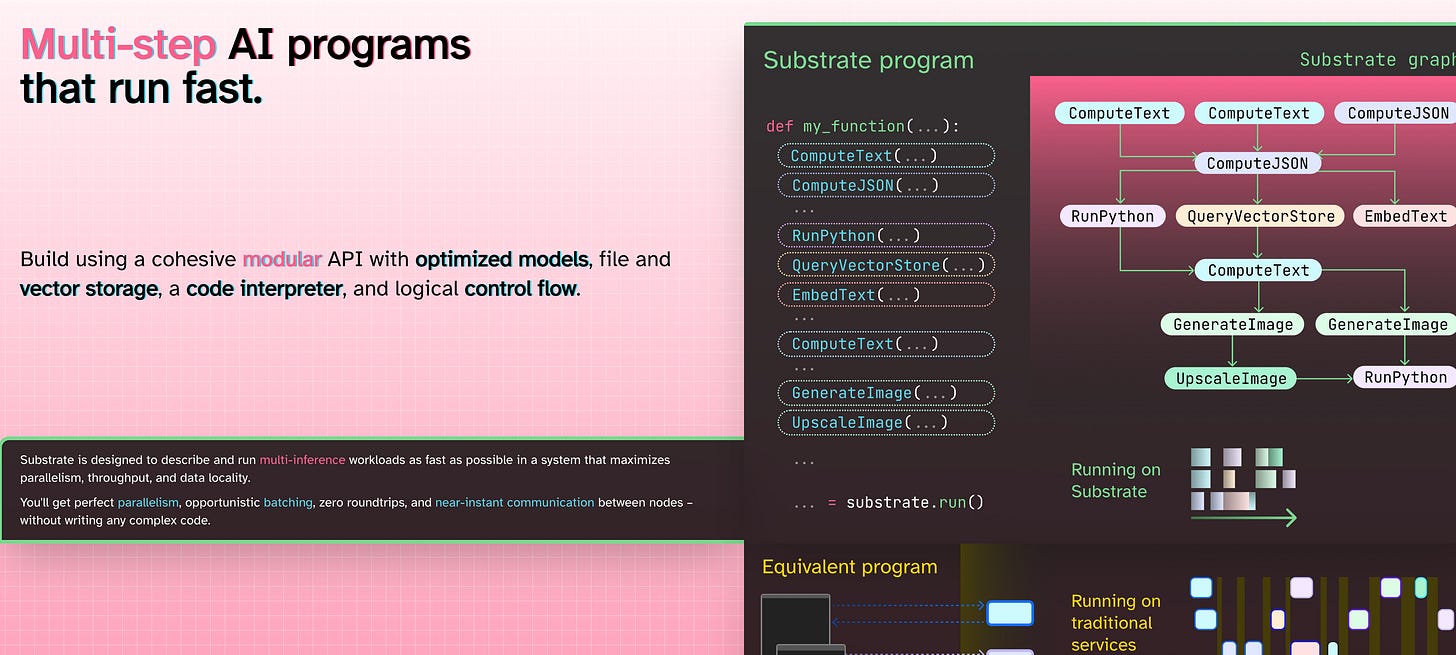Agentic Coding with Claude 3.5 is Impressive & Perplexity CEO on AI
A number of hits around the AI and ML world!
Morning y’all!
It’s Friday and it’s the end of the week and there really was only one thing that I thought was worth taking a look at:
Have a great Friday and weekend! Get some rest!
※\(^o^)/※
— Summer
Wow. This is not a small deal:
There are a handful of other examples via Alex that are seriously making me wonder if I should be spending much more of my time in Claude than I have already. This mission statement is exciting:
At Anthropic, everyone from non-technical people with no coding experience to tenured SWEs now use Claude to write code that saves them hours of time. Claude makes you feel like you have superpowers, suddenly no problem is too ambitious. The future of programming is here folks.
Is it? Or are we just getting closer.
It’s a long interview so here are some of the highlights over the 3 hours:
In the "Lex Fridman Podcast #434," Aravind Srinivas, CEO of Perplexity, discusses his company's mission to revolutionize internet search by providing accurate answers with proper citations. Perplexity combines search and large language models to generate well-formatted answers with footnotes, reducing hallucinations and improving reliability.
Srinivas shares that Perplexity functions as an answer engine, with the search engine part extracting relevant results and the LLM generating answers. The company aims to create coherent and human-appreciable answers backed by multiple sources on the internet.
Srinivas also touches upon the differences between Perplexity and traditional search engines like Google, the importance of related questions, and the potential future of AI, search, and the internet. He expresses admiration for Google's founders and their innovative approach to search engine ranking, while acknowledging the challenges of defending against manipulation of AI systems. Throughout the conversation, Srinivas emphasizes the importance of understanding user intent, providing high-quality answers, and focusing on the user experience.
Aravind then reflects on the evolution of AI models, particularly attention mechanisms and Transformers. He discusses his past predictions about AI limitations, such as energy-based models and reinforcement learning, and shares his current perspective on the potential of autorregressive models and reasoning in abstract representations.
Srinivas also emphasizes the importance of open-source AI for transparency and safety, and touches upon the impact of self-attention in the Transformer model and its role in recent AI advancements. The conversation covers the development of language models, the potential of small models in reasoning, and the possibility of an "intelligence explosion" in AI. Srinivas also shares his thoughts on the future of AI, search, and the internet, and discusses the origins and success of Perplexity.
Finally, in the last hour, the two discuss the intricacies of indexing the web for their AI search engine, the challenges of effective search in the context of AI and the internet, and Perplexity's approach to AI models and scaling. Srinivas highlights the importance of a hybrid approach to search, combining various techniques and signals, and the role of large language models in processing queries.
He also shares Perplexity's vision of a personalized knowledge platform that fosters human curiosity and encourages the discovery of new things. Additionally, Srinivas emphasizes the importance of commitment, dedication, and exploring new things during one's younger years for achieving great things. He also discusses the potential impact of AGI systems on human lives and the importance of addressing the emotional connection between humans and AI.
And as they close down their chat, Aravind shares his optimistic views on the role of AI in bridging divides and reducing biases. He draws a comparison between the necessity of understanding during wartime and the potential of AI to help us comprehend diverse perspectives.
Srinivas expresses his hope that through AI, humans can minimize their biases and gain a deeper understanding of the world. He concludes by emphasizing the significance of curiosity and the awe-inspiring enigmas of life and reality.
It’s a thick interview but some really good thoughts.
Speak is a language learning app that is combining AI in some very useful ways. With over 10m users they’ve been growing like a weed.
Two Ex-HubSpot execs are building an AI-powered CRM. Personally, this sounds terribly boring but the CRM business is massive; I just personally don’t have any interest in trying to solve CRM-stuff.
Here’s another one called Day.ai that’s also entering into the space too.
Former Snap engineer is building a new social app to the market that combines AI baked right in:
Butterflies’ concept goes beyond Character.AI, a popular a16z-backed chatbot startup that lets users chat with customizable AI companions. Butterflies wants to let users create AI personas that then take on their own lives and coexist with other.
Download a copy here on iOS.
I’ve read this article about “Dot” and I’m still a bit uncertain as to what it actually does uniquely. Perhaps I’ll actually give it a try this weekend. LMK if you try it.
Run multiple AI programs and models with a robust API and optimized models.
And one more podcast:
Kieran Flanagan of HubSpot dives into AI's practical applications in the tech industry, emphasizing its role in strategic planning, enhancing user interfaces, customer service, and driving social networks.
A core takeaway: AI still needs human insights to be operationally effective in the workplace.
And something silly to round it all out:
Yes, please stop.
※\(^o^)/※
— Summer








